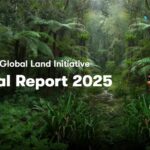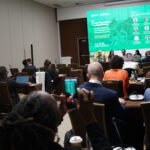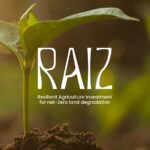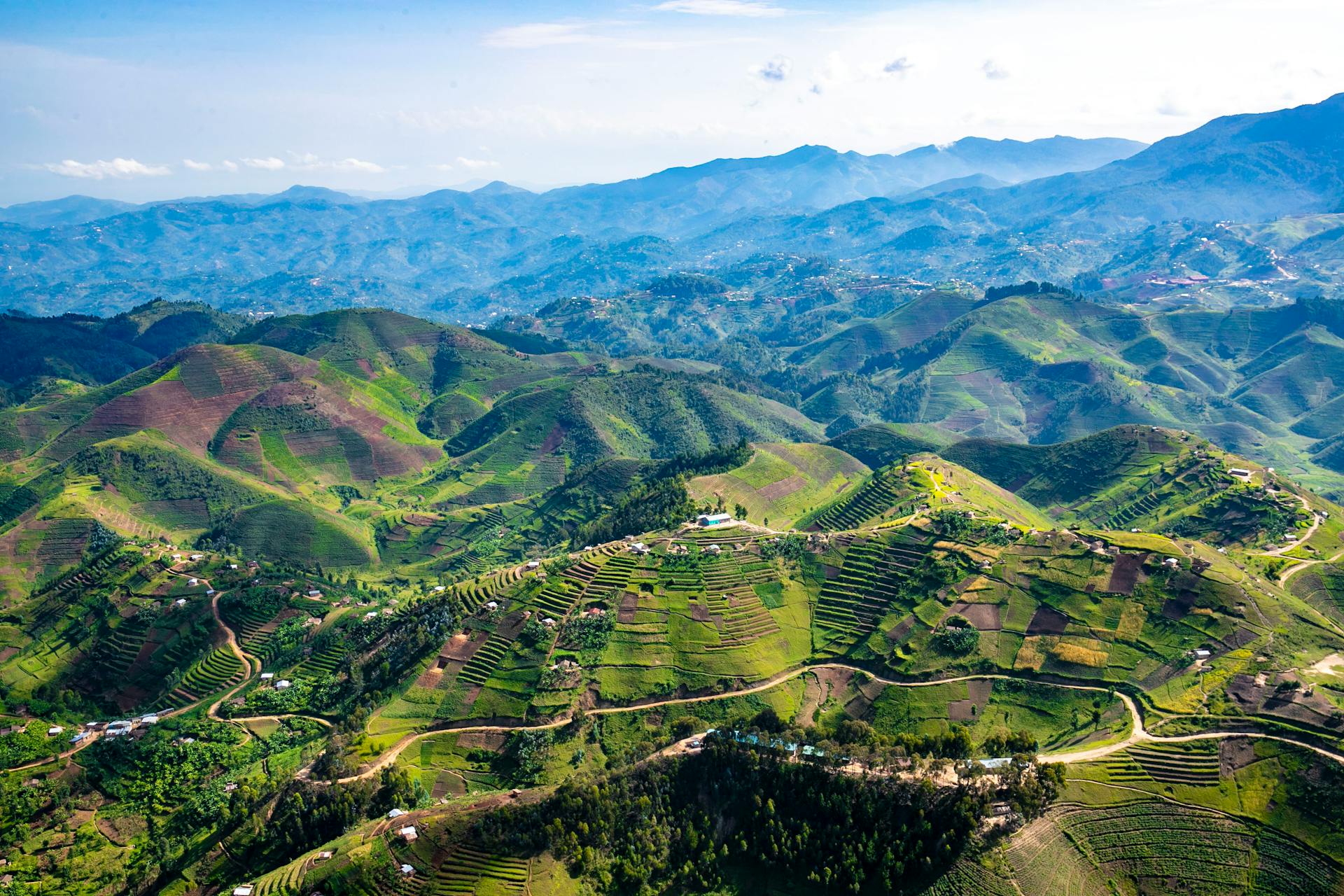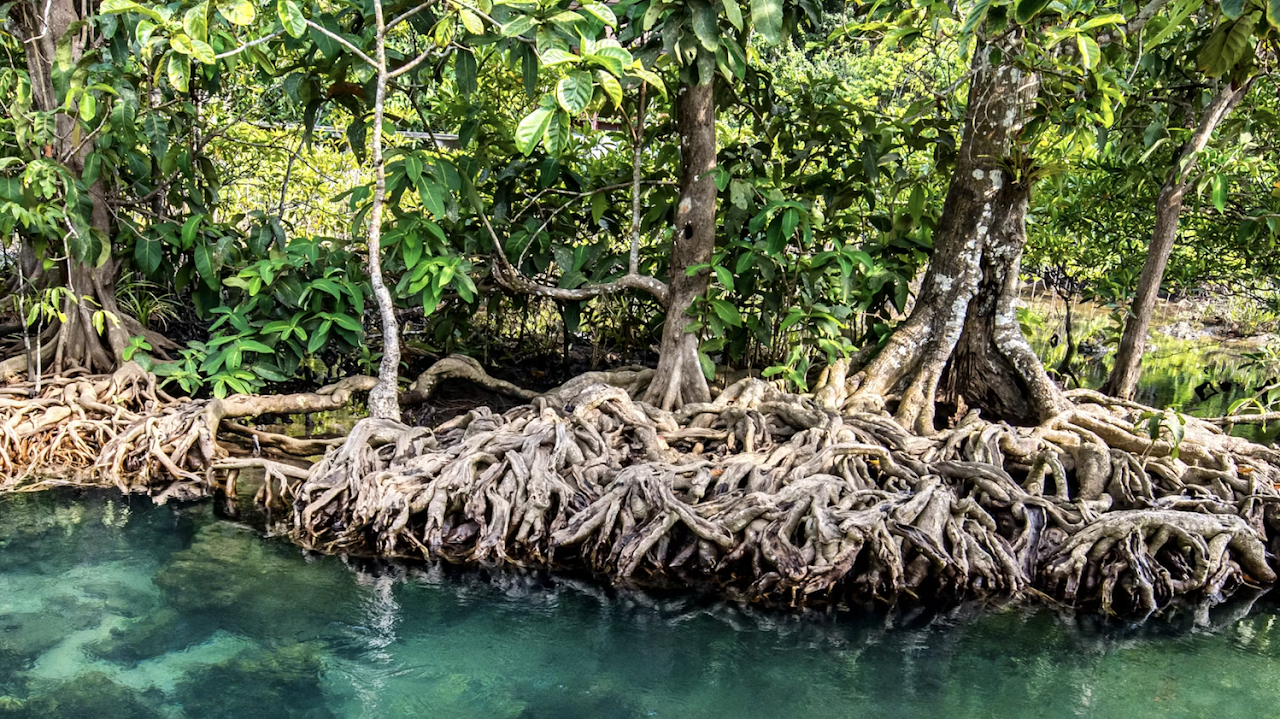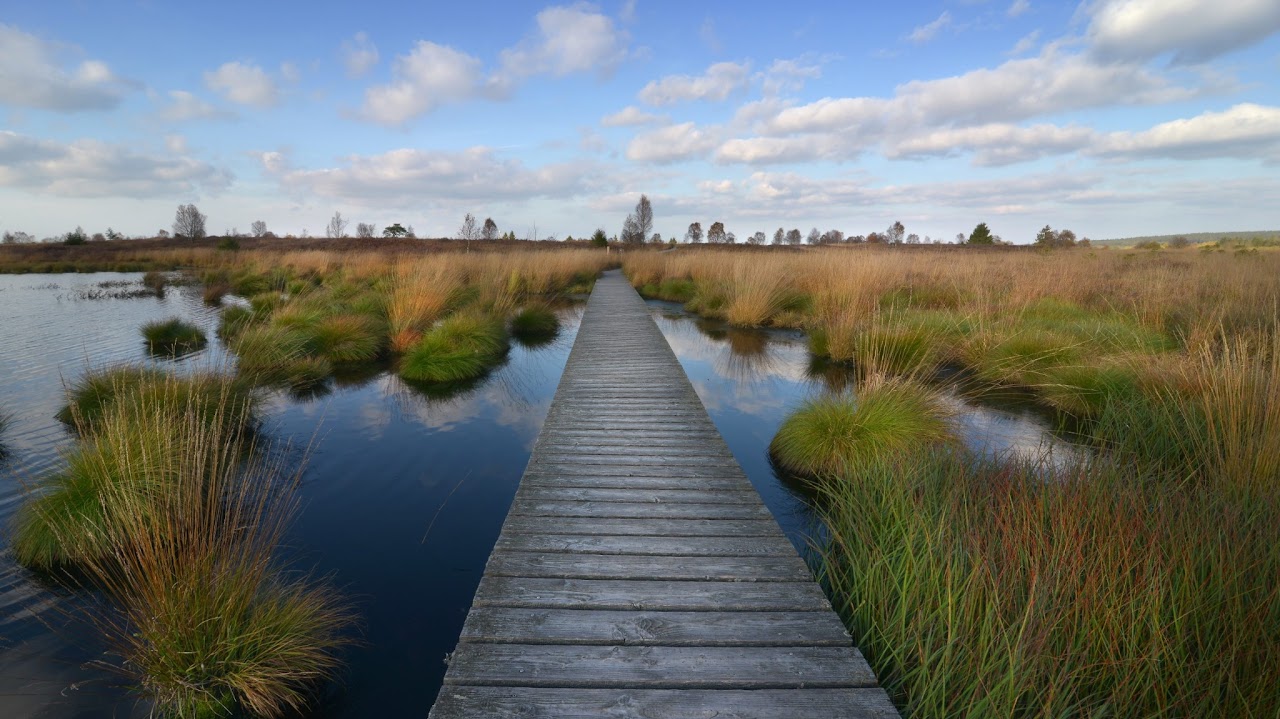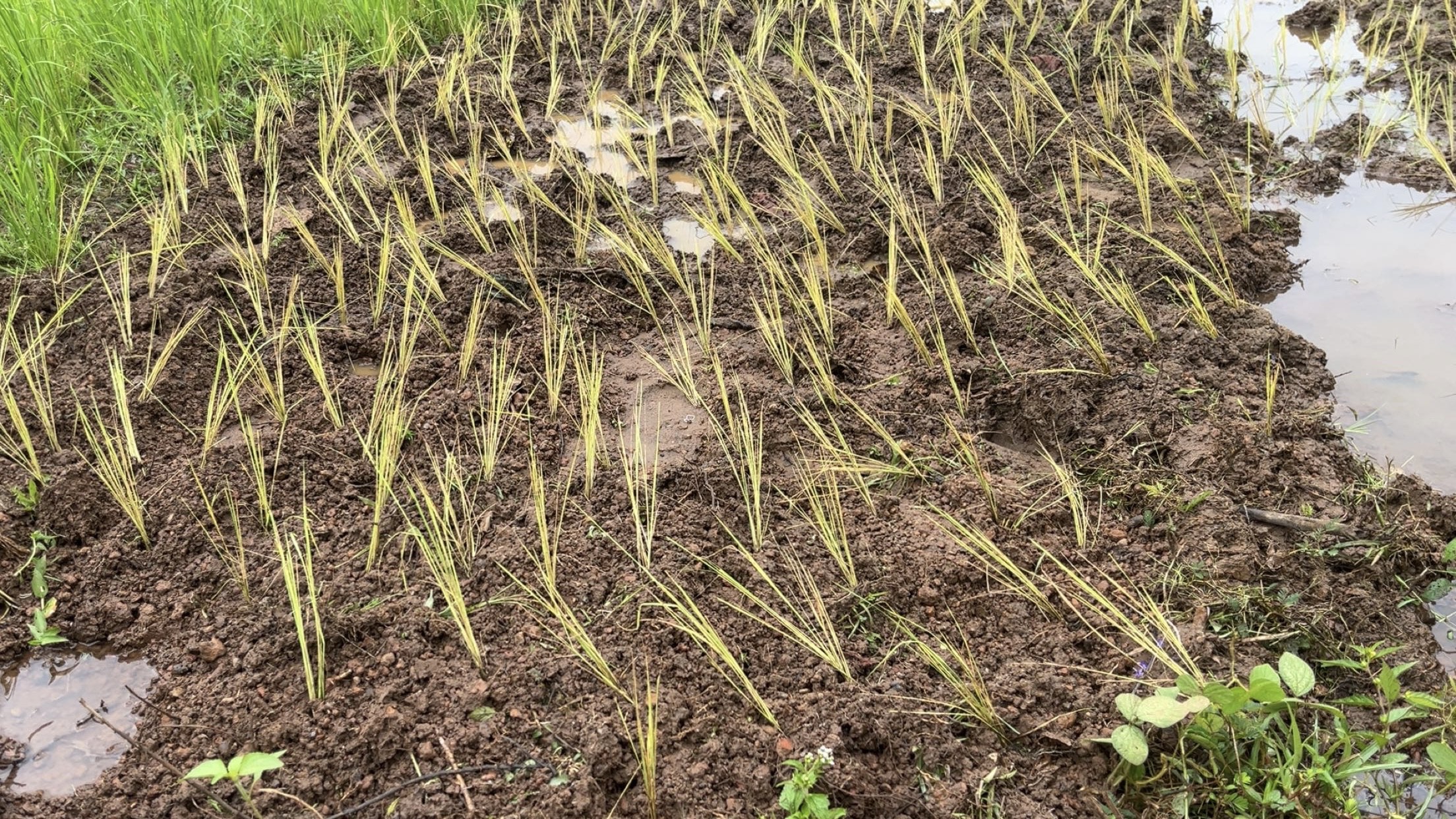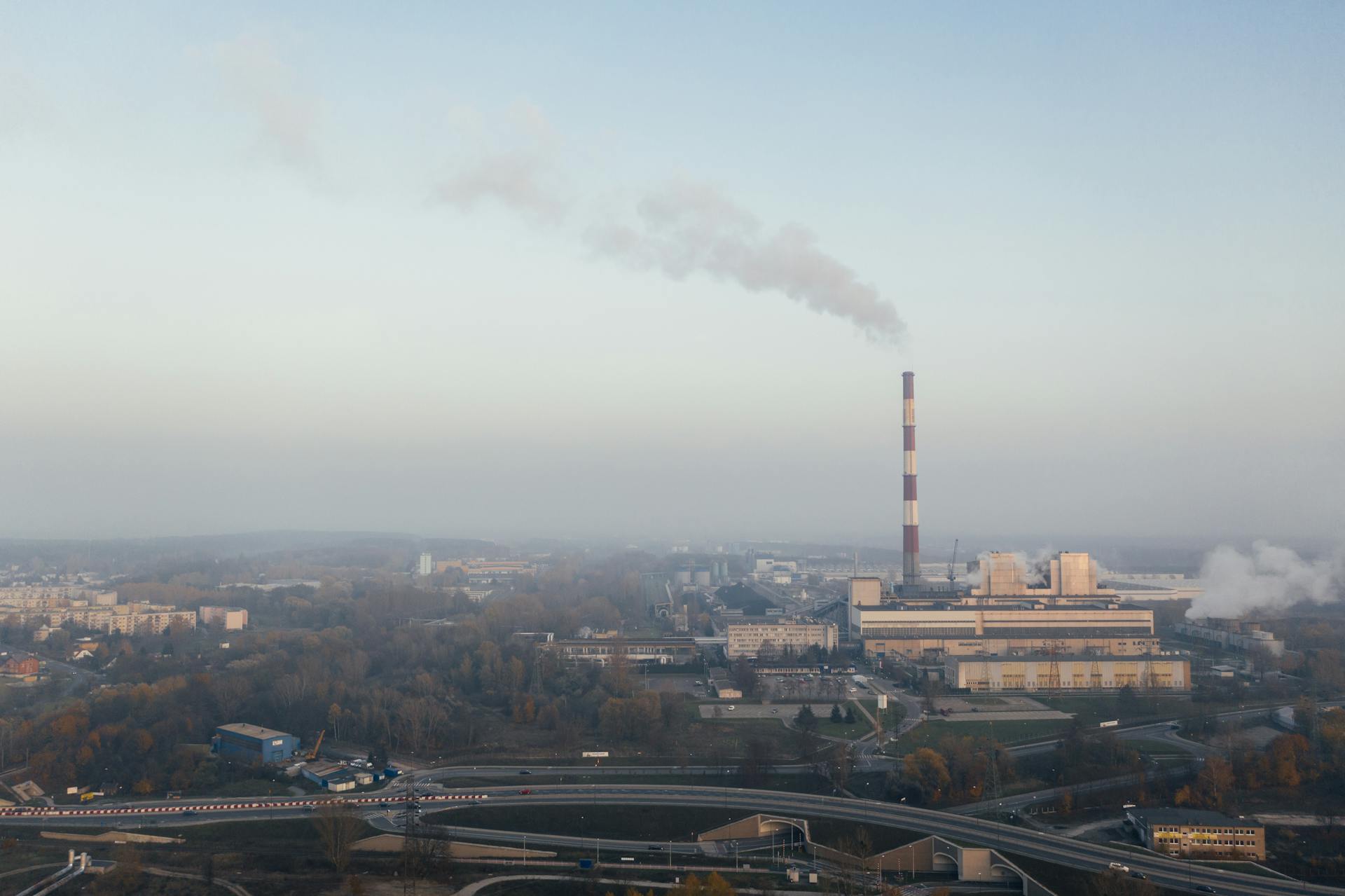Triggering change! @ the Landscape 2024 Conference
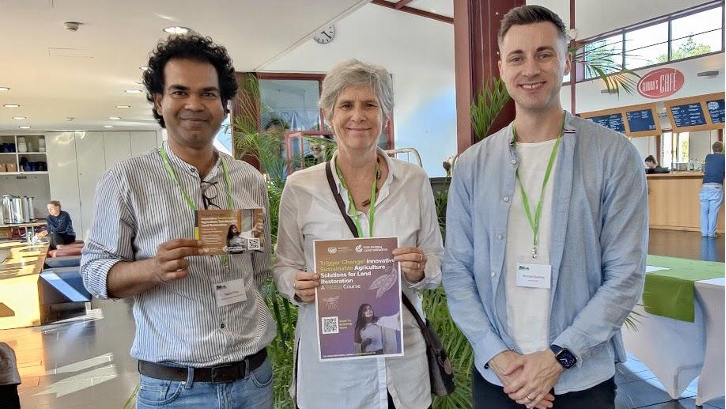
Our team: (l-r) Dr. Nazmul Huq, Dr. Karen Sudmeier and Dr. Norman Kearney
Photo credit: UNCCD G20 Global Land Initiative
The third “Landscape 2024” conference held 17-19 September 2024 in Berlin, Germany, brought together close to 300 university professors, researchers and private sector representatives to discuss the role of agroecology in landscapes worldwide. It was the first international conference for pitching our university course: “Trigger Change! Innovative Sustainable Agriculture Solutions to Land Restoration.” We were not sure what to expect.
Since launching our transdisciplinary course in March 2024, the response has been more than enthusiastic, with over 350 downloads from 282 institutions, of which 166 (nearly 60%) are universities or training institutions. This is an elective course for advanced undergraduates or master’s students enrolled in agriculture and related programs. The course intends to bridge a gap in higher education in equipping students with skills to combine sustainable agriculture with innovation and entrepreneurial skills.
During the 90 minute conference session, our team of presenters and course developers, Dr. Norman Kearney, University of Berne/ WOCAT, Switzerland; Dr. Nazmul Huq, TH-Köln, Cologne University of Applied Sciences, Germany; and Dr. Karen Sudmeier, G20 Global Land Initiative, United Nations Convention for Combating Desertification, interacted with workshop participants to better understand their views and perspectives related to innovation, entrepreneurship and sustainable agriculture.
The team presented the main topics and properties of the course: Land, landscapes and society; agricultural approaches to Sustainable Land Management (SLM) for land restoration; tools and technologies for land restoration assessment and monitoring; decision-making tools and enabling factors for land restoration; and catalysts for innovation and start-ups. They also explained the core course principles, including:
-
- Modular: the course is organized in modules (and sub-modules, or units), which can be taught individually or as a package, together with a didactic note encouraging interactive didactics;
- The course is developed as an elective course, equivalent to 48 hours of teaching materials, or 3 credits under the European Credit Transfer System;
- Course materials are made freely available to university professors or other institutions with a mandate to instruct land restoration as part of agriculture programs;
- Course philosophy is to provide an interactive learning environment which emphasizes active learning, while providing a teaching foundation for professors who may not be familiar with all topics;
- Course materials consist of 48 Powerpoint lectures (around 30 minutes each); student exercises; suggested readings; a course manual; and 10 case studies from around the world.
- The course was co-developed by 18 universities and peer-reviewed by 10 experts, globally.
Participants’ feedback was lively and engaged, with high enthusiasm for the course, its transdisciplinary contents and interactive pedagogics. Our team of presenters engaged with participants through Menti polls throughout the session, capturing responses, such as:
“Set requirements for all relevant courses to incorporate these themes. Ensure students gain related practical as well as theoretical knowledge, skills and values.”
“Increasing practical learning in the field to strengthen love for Nature.”
“Trigger others to think and value collaboration for transitions toward sustainability.”
The enthusiasm and positive feedback at the Landscape 2024 conference was an additional boost for our global course and an encouragement to continue pushing the limits of transdisciplinarity in innovation and ecopreneurship in sustainable agriculture for land restoration.
Visit our webpage to find out more or join one of our upcoming online training of instructors’ workshops: https://g20land.org/trigger-change/
